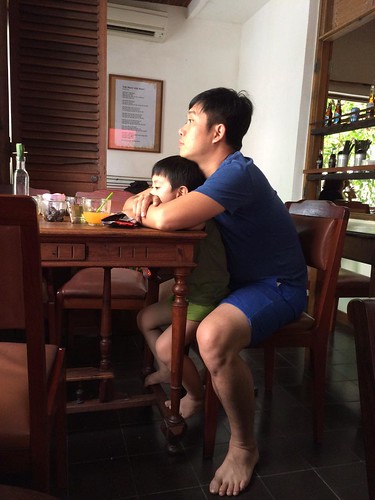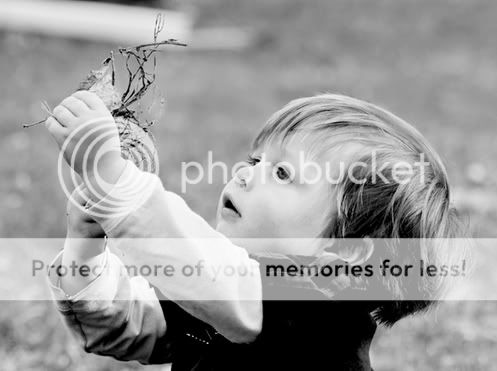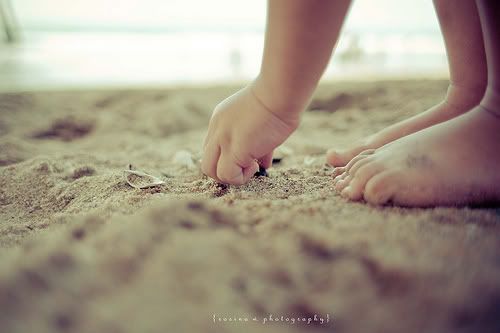( Ảnh: Sưu Tầm )
Chia sẻ về kinh nghiệm của bán hàng, cảm xúc về cuộc sống gia đình hoặc chỉ là một quyển sách đã từng đọc
Chiến Phan
Thứ Bảy, 3 tháng 11, 2012
Hãy bình yên con nhé!
( Ảnh: Sưu Tầm )
Thứ Sáu, 27 tháng 7, 2012
[Musings of life] Người đàn bà không hóa đá - The Woman Who Did Not Turn to Stone
Có những giấc mơ gãy gập giữa đường.
Có những lần con gái nói sẽ lấy chồng cho mẹ bớt lo, mà nước mắt bà thấm xuống đất không ai hay.
Hoàng hôn lùi dần.
Bà ngồi đếm từng đứa con, từng mảnh thương nhớ, từng đoạn đời ngang trái.
( Ảnh: Sưu tầm )
Somewhere in Nha Trang, the sun slanted fiercely.
I startled. I remembered.
Today was Mother's Day.
The sea breeze wandered aimlessly; I called home.
And wrote — amidst a heart tangled with emotions.
She despised how Liberation Day and Mother's Day always came so close, like two old wounds — love and sorrow — tearing through her mother's heart.
Every year, as Mother's Day approached, the children would call home, strings of longing trailing through the line.
And every April 30th, memories returned in waves:
The youthful days swept by war;
The slender shoulders bent under the weight of survival;
The girl who left her maidenhood behind for a lifetime of waiting — not turning into stone, but bearing every flavor of life: salty, sweet, sour, bitter.
She told her story in a voice as light as the afternoon wind, without regret, eyes smiling in the fading light.
She met Father when her skin was still tender with youth;
By the time he left for the battlefield, the sun had soaked into her bones.
He went to war, leaving behind a wife and three young children, clinging to survival with nothing but an unshakable faith.
Morning meals scavenged from the market.
Afternoon hours cutting rice on the paddy.
Evenings sewing by a flickering lamp.
Children sleeping in the cradle — scorched by a wayward flame — while she toiled unaware in the fields.
Suns setting in silent sorrow, as she whispered no blame to poverty, only tucked her tears deep within.
War swept through, leaving her with five bewildered children and a hollowed heart.
Father returned, only to leave once again — this time forever.
She drifted south to the Mekong Delta, raising her brood alone amid the brackish waters and acidic fields, back bowed under midnight harvests.
When the neighbors laughed at her toughness, she smiled.
When the world turned its back, she clung harder to her children.
I listened, choking back tears.
Her life — so close, yet so unspeakably vast.
Awe and sorrow intertwined:
What strength bore her through storms that would break lesser souls?
She smiled faintly: "A mother's instinct, nothing more."
Some children had to give up their dreams so that others could fly.
Some hopes were packed away, silently weeping.
Some daughters whispered of marrying early, just to ease their mother's burdens — while her silent sobs fell to the soil unseen.
Sunset faded;
She sat counting her children, counting her scars, counting each life that grew out of hers.
Amid the streets fluttering with flags,
no one noticed the way her heart crumpled quietly,
sinking into an endless ache:
"Remember a time when hopes bloomed and withered,
When young maidens aged waiting for their husbands' return,
Dreaming of reunion, but finding only farewell."
HÈ ĐỎ LỬA - The Red Summer of '72
Sitting and talking with her in the wistful atmosphere of a summer afternoon, as the sky was hemmed in by gathering dark clouds. A few strands of her cloud-like white hair danced with the breeze, gently fluttering. A memory of a summer night from nearly forty years ago. A summer night of fire.
The woman. Forty years ago. With three children in tow, she lived in the village of Le An, Phu Vang, in the war-torn land of Binh Tri Thien. She would always remember a summer night in 1972. In the middle of the night, a woman's intuition told her to grab her child and run from the war.
Running through the night's mist. One child in her arms, another running alongside. She used a cloth rope to tightly bind her children to her waist, fearing she would lose those hungry, ragged lives, their childhood dreams trampled by bombs and bullets. Terrified.
Running through the long night. With families from the neighborhood. She counted at least ten households, running together so as not to get lost in the dark. The road was desolate. The escape route from Phu Vang went through a fishing village to Thuan An, the only remaining safe place in a historical standoff between the People's Army of Vietnam and the Army of the Republic of Vietnam.
Running amidst devastation. Some people fell behind, victims of bomb raids or stray bullets, their blood staining every step. The woman, with one child in her arms and another by the hand, ran through an immense forest of casuarina trees. Hope. The enemy didn't see people weaving beneath the trees, bombarding lives already tormented by war. Her steps were relentless, and in her heart, she ceaselessly prayed for a way back without sorrow. If we die, at least mother and children will be together; if we live, at least mother and children will be together. She ran on, guided by this spiritual thought. The forest of casuarina trees welcomed the wind from the estuary, soothing some of the pain and fatigue from the sinking sand with every step. They reached the fishing village at dawn, after several times of jumping into trenches to avoid bombs along the way whenever they heard the sound of artillery.
A gust of wind brushed against its face. I wondered if I was the same wind from that summer night, blowing from the sea through the hair of the woman now sitting before me, her hair shimmering with the colors of time. Faded. Now, her forehead is etched with crow's feet, as she recalls the silent footprints she made carrying her children that day. The wind strayed and rippled the surface of Khong Tu Lake. A summer afternoon without a trace of sunshine.
The waves rustled on one side, the pine forest rustled on the other. So they ran through the night, dodging bullets and jumping into trenches. At dusk, they found temporary shelter in an abandoned house, looking for some water for their thirsty children, their throats parched from sweating all night. Exhausted.
They ran from the crack of dawn to the late afternoon. They stopped at another ownerless house, lighting a small fire to cook some rice for her children with the rice she had carried. Back then, she worried that the fire's smoke would attract artillery fire.
The woman sat before the pot of rice, the fire embers dying. Her baby was slung on her back. Her two young sons ran to the opposite house to play for a moment in the fiery red sky. Innocent. Unaware of the future that awaited them.
Thud. A bomb exploded. The house across the street was left in ruins, only fire and smoke rising. The woman panicked amidst the desolate, fiery landscape. Frantically. Searching for her children.
I saw her shoulders tremble, the emotion of those days of panic, the scene as vivid as if I had just happened. Stunned. Time didn't stop on a body that had endured war. Age spots dotted her skin.
Screaming her children's names between bomb craters and gunfire. The two boys called out for their mother from a thicket of old bamboo. Panicked. Running wildly to their mother. At that moment, it was I because of their cleverness that they had fled when they heard the artillery, or was I because the war had trained them that the children knew how to run from the enemy and take cover from bombs? She hugged them, tears flowing. She thought she had lost her children.
With their stomachs barely full, mother and children continued on their way. Fleeing from the enemy. Thuan An was the destination, though she had never been there before, not since childhood, until she became a mother of three. The woman walked, asking others for directions as they fled the war. They journeyed together. Wind, smoke, blood, and deep trenches. The woman ran tirelessly for an entire day and night. A distance of more than ten kilometers. Running in circles. One mother, three children. Under a summer sky of fire.
The woman now sits before me. Her eyes gaze at a sky full of flying clouds. Some white, some black. Some portend a coming storm. She is no longer afraid, for her life has known both sun and rain. She is no longer afraid of the rain of bullets and bombs, but if asked to do it all over again, she is terrified to even think about it. War. The two words haunted her. Even now, in peacetime.
(P/S: A hurried note on a summer afternoon, when the sun had gone astray, leaving only a scattered cloud on its way back to a horrifying old memory.)
[Nhật ký của cha] Merci, ông già & con chữ
Ai rồi cũng phải lớn! Ông già nhận ra điều đó khi ngồi ly trà cúc còn ủ hơi nóng ở một đêm cuối hạ, lắng nghe thằng nhóc Merci nói bằn...

-
Ai rồi cũng phải lớn! Ông già nhận ra điều đó khi ngồi ly trà cúc còn ủ hơi nóng ở một đêm cuối hạ, lắng nghe thằng nhóc Merci nói bằn...
-
Nó tò mò về chữ Lagom nghĩa là gì. Bìa sách thực sự thu hút và nghĩ rằng đây sẽ là một quyển sách thích hợp làm quà tặng cho em; một ...
-
Quẳng vali qua một góc phòng, nó nằm vật ra chiếc giường lót drap trắng muốt của khách sạn sau một ngày dài vật lộn với công việc để đến ...







